This post is also available in: German
If you want to create a memorable experience for your customers, you need to dig a little deeper into who your customer is and what they want. You need to get into your customer’s head and consider who they are influenced by, what their pain points are, and their goals and challenges. One of the most popular ways to extrapolate this information and begin improving your customers’ experience is by using a Customer Empathy Map.
If you’re ready to get started on your own, you can access our free and editable Customer Empathy Map template by clicking on the image below. For a more detailed explanation, keep reading this post!
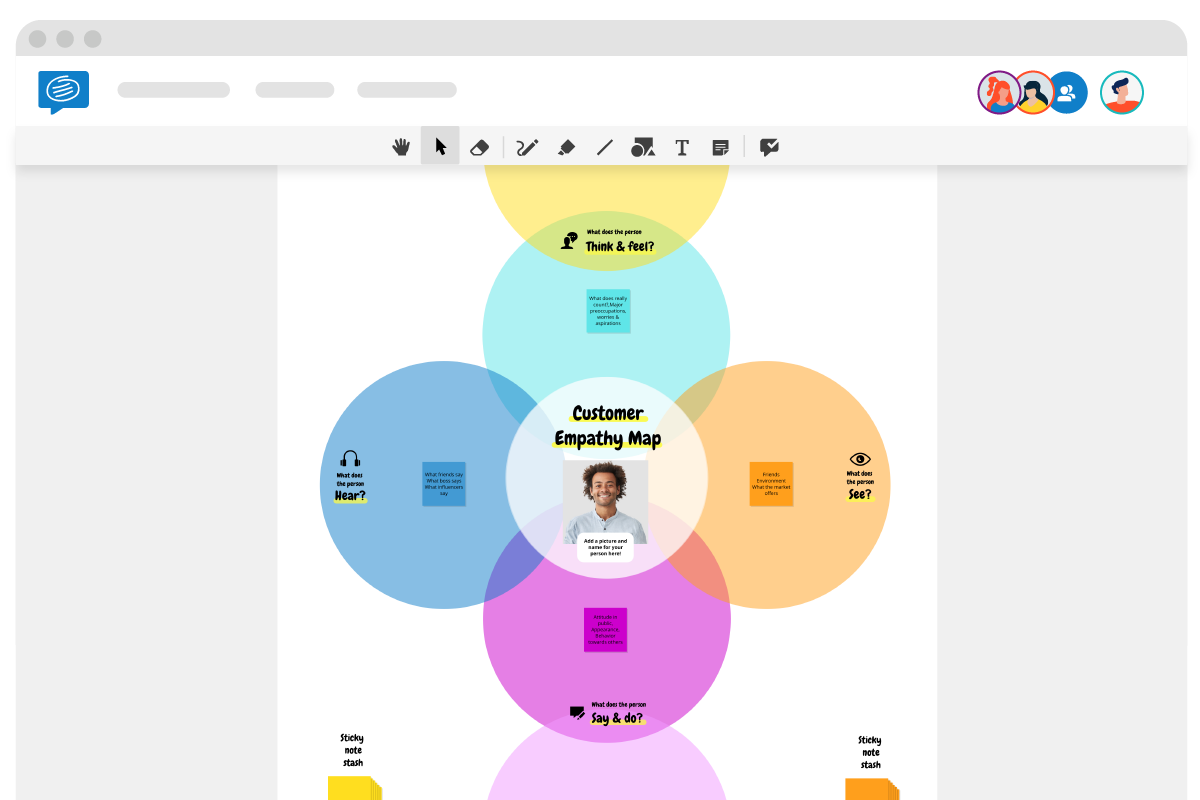
How to use the Customer Empathy Map template
If you haven’t yet defined your ideal customer, you can start by using a Customer Persona template. It’s important to have basic information about your ideal customer in order to complete a Customer Empathy Map. You could also use a customer journey map in order to improve customer experience across various touchpoints.
- While you can complete it alone, you’ll get much deeper insights if you can do it as a collaborative activity. That way, everyone involved will benefit from understanding your customer better. Book a meeting slot (we recommend an hour), then invite team members from different departments by sending them a link to the board.
- Go through each of the six sections and encourage everyone to add at least one sticky note in each quadrant based on their customer knowledge or experience.
- Return to each section and delve deeper or consolidate thoughts until you have a succinct collection of customer traits in each section.
- Once you’ve finished, you can share the completed board by downloading it as an image or a PDF.
What is a Customer Empathy Map?
A Customer Empathy Map is a tool used when collecting data about customers to better understand your target customer base. They allow you to visualize customer needs, condense customer data into a clear, simple chart, and help you see what customers want — not what you think they want. By following this map, you can systematically find answers, without playing a guessing game.
When we look at empathy from a marketing perspective, we’re talking about putting ourselves into our customer’s shoes, to be able to understand their needs and wants better. And thus, deliver a product or service that not only meets but exceeds their expectations!
There are six key steps in a Customer Empathy Map that will allow you to collect important information about your ideal customer to be able to really understand them. The six different components you’ll consider are:
- What the customer thinks and feels
- What the customer hears
- What the customer sees
- What the customer says and does
- The customer’s pains
- The customer’s gains
So let’s jump right in, and find out more about the Customer Empathy Map.
1. What your customer thinks and feels
This section mainly focuses on the customer’s emotions and feelings. You want to find out what really matters to the customer, what are their major concerns?
How do they react to certain things, and are they are happy with your service or product?
What other thoughts and behaviours contribute to their spending habits?
2. What do your customers hear?
Here, you need to identify who or what is influencing your customers.
Who are they listening to and getting their advice from? Are they influenced by family and friends, or do they trust the media and advertising more?
You also need to focus on how and where they get their information: through which channels or means. Are they using social media, certain blogs, watching TV news, or reading magazines and newspapers? This will be very important when you come to choosing where to focus your advertising budget.
3. What does your customer see?
Within this part of your map, you want to assess what is happening in the market. What are other competitors doing? Do they see a change or a shift in the industry?
Also, what are their friends doing and using?
You can also ask your team to provide more details on what problems your ideal customer is exposed to daily and what exactly is in their environment.
All this information is valuable to understand their external influences, how is this affecting them, or how will this affect their purchasing behaviors. You can then use this to be proactive in creating products that solve a problem they foresee.

Discover visual collaboration
4. What does your ideal customer say and do?
What are they actually saying in public about us or to us, and what do we wish they were saying?
Are the things they say accurate, or based on external influences and brand gossip?
You should be able to understand these behaviors and map out a clear strategy to make a shift in their performance. Then educate and help them to buy a specific product or service by adding value.
From there, you will be able to further understand if their words match their actions and what really matters to them. Frequently, people do one thing and say another, especially if they are not informed accurately about the industry.
If you have them, you can place direct customer quotes in this section.
The final two sections, pains and gains, are optional but certainly beneficial.
5. What are your customer’s pains?
The pain’s section is where you want to find out what are their fears, frustrations, and the obstacles they need to overcome. You can then use this information to find out what is stopping them reaching their goals and desires, such as roadblocks or challenges.
6. What are your customer’s gains?
In the gains section, you should include information regarding your target customers’ success, and how they obtained it. This will also include their goals, wants, and needs; what exactly makes them happy on an everyday basis.
Customer Empathy Map example
We’ve created an example Customer Empathy Map for a fictional fair trade coffee brand. You can see we’ve based these traits on our ideal customer, ‘Anna’, a 32-year-old lawyer from London. Anna is concerned about the environment and has a strong desire to give back. She likes to feel empowered and values fairness, equality and personal growth.
When should I use a Customer Empathy Map?
While Customer Empathy Maps can be built on existing knowledge or stakeholder feedback, they work best when they are based on real data. Therefore, they should be made after customer research such as interviews or customer satisfaction surveys are completed.
An Empathy Map is best used at the start of a new project, or when redesigning a new product, service or even a website. Empathy maps are also used in the first step of the Design Thinking process when building empathy for the end user.
While you can complete it alone if you work for yourself, it is a very beneficial activity to collaborate on in teams. That way, everyone involved will benefit from understanding your customer better. Simply invite each team member to the board, then during the session, encourage everyone to add at least one sticky note in each quadrant based on their customer knowledge or experience.

Where distributed work happens
If you’d like to learn more about your customers, don’t forget to take a look at our free Customer Persona template. Once you are done creating a customer empathy map, you can also use a value proposition canvas in order to visually represent the value your product or service brings to the customer and achieve a better product-market fit.

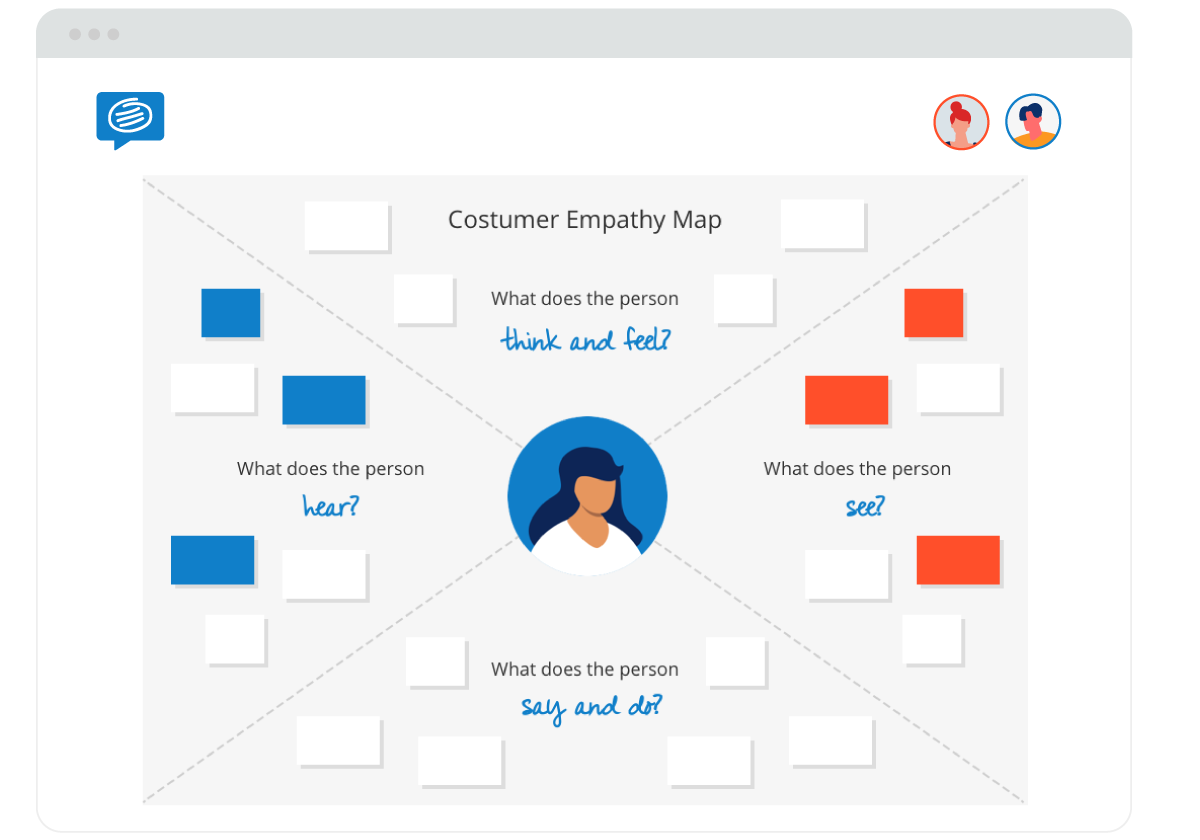
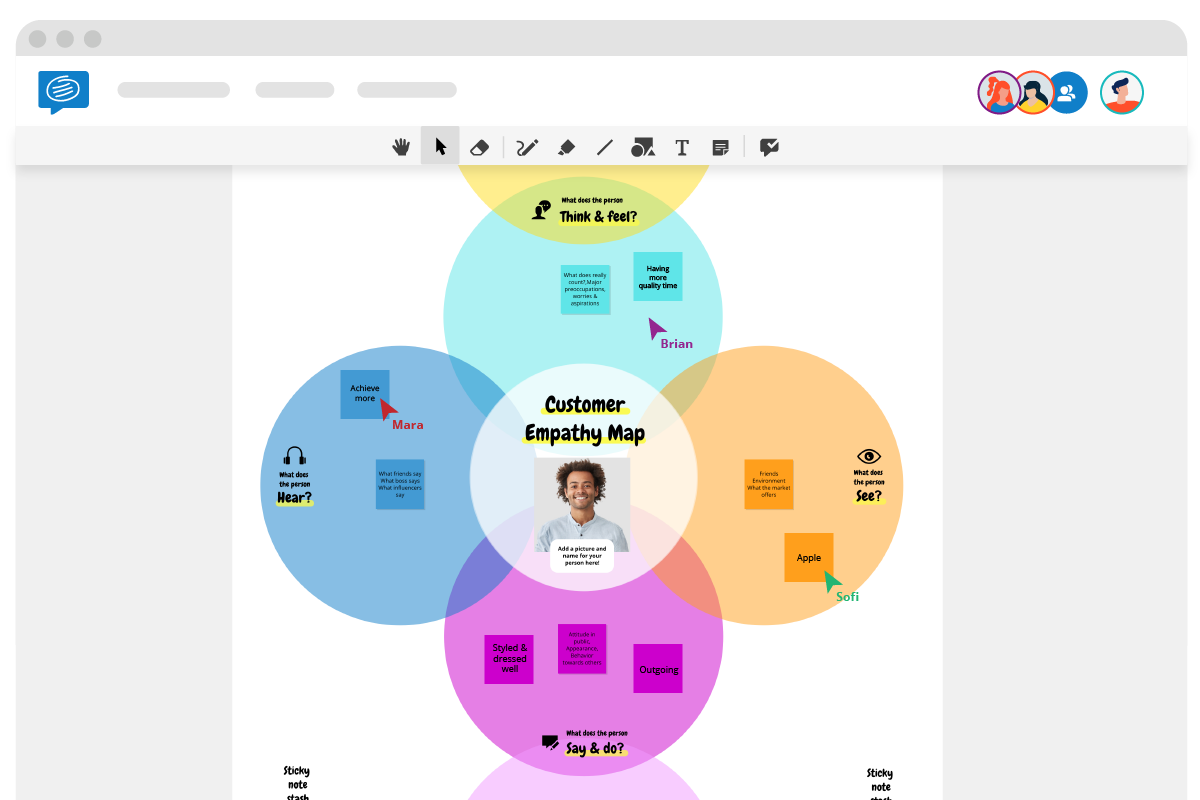
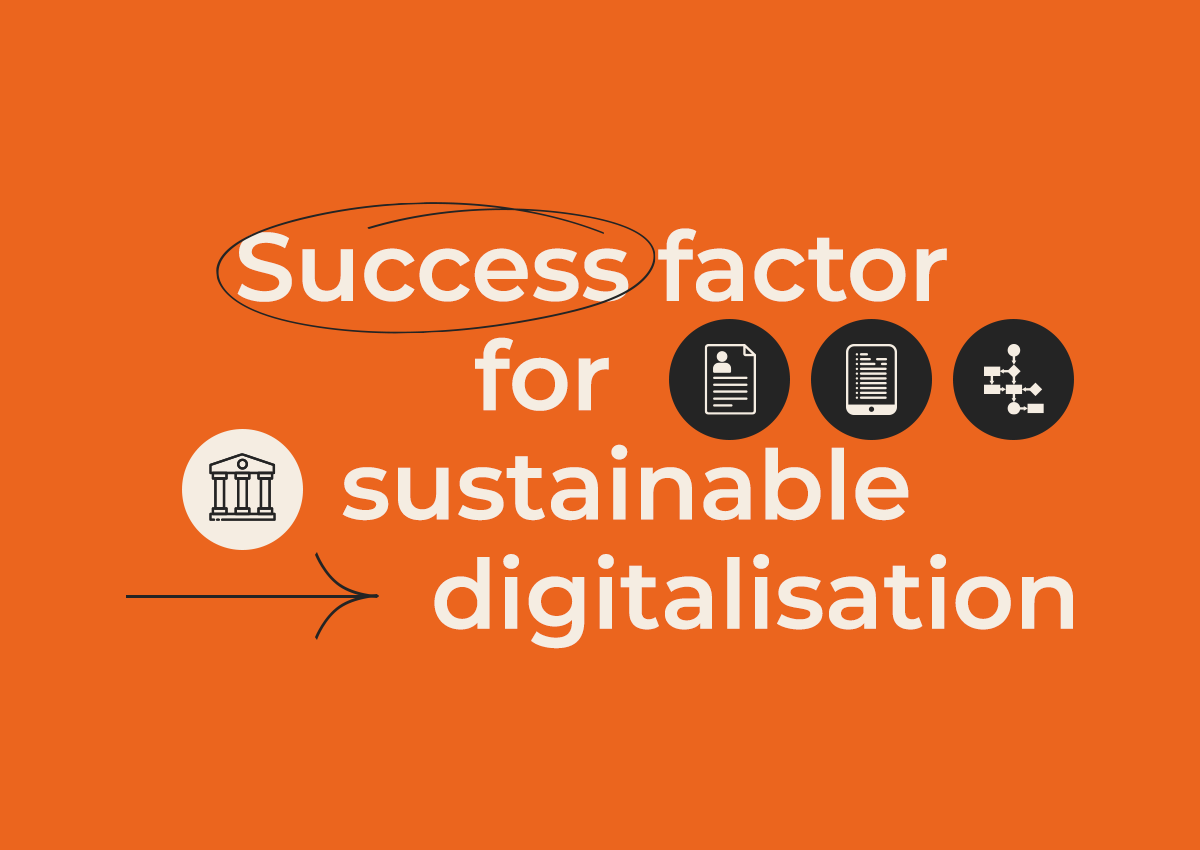

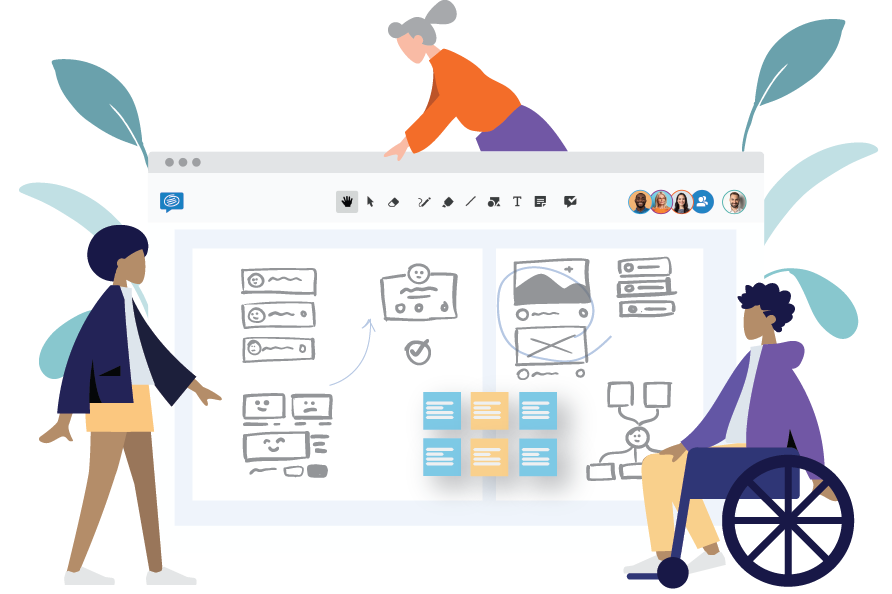
29 Comments. Leave new
Really Amazing! It is such a brilliant idea to create a customer empathy map to collect your valued customer’s data in an organized manner. Thanks for sharing a great article.
just awesome and really really helpful. Love it
I enjoyed this article, It’s a deeper dive on Empathy mapping.
I like to use visuals as well as a counterbalance to all the text.
Thanks for sharing this first part of Design Thinking approach. I work in area of eGovernance and trying to use Design Thinking to design government services for its citizens.
Good article. I liked the use of diagrams / maps to accompany the text.
Thank you for the great review, David! We’re happy you like the use of diagrams/maps. Thank you again for using Conceptboard.
I’m impressed, I must say. Seldom do I encounter
a blog that’s both educative and entertaining,
and let me tell you, you have hit the nail on the head.
The issue is an issue that too few folks are speaking intelligently
about. I am very happy that I came across this during my hunt for something relating
to this.
Thanks for your feedback! Glad you enjoyed reading it.
Great blog! Do you have any tips for aspiring writers? I’m hoping to start my own site soon but I’m a little lost on everything.
Would you suggest starting with a free platform like WordPress or go for
a paid option? There are so many options out
there that I’m completely confused .. Any ideas? Appreciate it!
Great post, Kathryn!! Empathy Map is used to understand the customer’s perception while they are using the product or services. Understand the customer’s concerns, shows empathy, and respond it appropriately, is essential for great customer experience. Below links can bring more insight into the topic. https://www.navedas.com/5-steps-b2c-relationships/ and https://www.laneterralever.com/blog/create-empathy-map#gref
Thank you for sharing! Very helpful
This is very informative post. Thanks for sharing.
Thanks for sharing this first part of Design Thinking approach. I work in area of eGovernance and trying to use Design https://tokomesinku.com/2019/04/06/jual-pipa-boiler-eropa/
Really Amazing! It is such a brilliant idea to create a customer empathy map to collect your valued customer’s data in an organized manner .. Jual pompa kondensat ADCA
Hey, are empathy maps done for online product or for physical products? or doesn’t matter? thanks!
There are some interesting points in time in this article however
I don’t know if I see all of them heart to heart. There’s some validity but
I will take maintain opinion till I look into it further.
If you want to know about Persuasive Essay Outline , We are having a team of experienced writers who can help you out.
Saya adalah seorang usahawati yg bergerak dibidang fashion dari pembuatan kaos,jaket,baju kantor,baju beladiri,trainning,asesories dan jasa embroiderry
Informative! It will surely gonna help me as one of my business strategies. Thanks a lot.
Absolutely amazing Making a customer empathy map to collect information about your valued customers in an organized way is such a wonderful concept.
Good article. I like your content as we are Image editing service provider.
After finding this article I was very motivated
thank you
JUAL PIPA BOILER DI INDONESIA</a
We are very happy to hear that!
I really like and am very happy to find these blocks and contents. The contents of this block really help us
thank you yeah
JUAL BURNER RIELLO RLS 190 DUAL FUEL MODULATING</a
We are very delighted our blogs could help you further!
Great post! Thanks for providing such valuable information.
https://www.colorclipping.com/jewelry-retouching-service
Thank you! We are very happy that you found our article informative!
Your post is very informative and really helps me as a pioneer in learning business
Thank you
JUAL PIPA BOILER ASTM A/SA192/P235GH-TC1 OD 44,45X5,20X12300MM</a
Thank you so much for your kind words! We’re thrilled to know that our post has been helpful to you on your journey as a pioneer in learning business. Wishing you great success as you continue to grow and innovate! 😊
good article by finding this article we can gain extensive insight into my network for providing stockists for our products that we provide in Indonesia
PIPA BOILER BENTELER OD 63,50X3,60X12,300MM CARBON STEEL</a